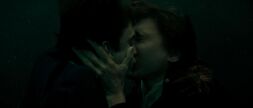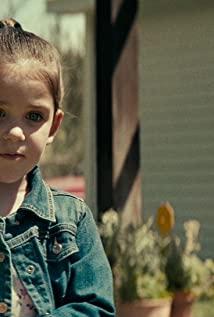At first, I had the attitude of watching comedy,
But it is getting heavier and heavier in the absurd.
A lot of people say it's unfinished, and even this idea similar to Jingfen is too cliché, and I agree with it very much, but the difference is that as a social person who is not good at socializing and full of fantasies, I don't like this ending. , can't hate it.
On the way of "surviving on a deserted island", the male protagonist stumbled and relied on a corpse in an attempt to retrieve the memory of the corpse. In fact, he was retrieving his own memory and "transplanted" all the original desires he wanted to express into a corpse. in the corpse. It's not so much a friend. In fact, it's like a doll who played with you when you were a child. You like him very much, you even depend on him very much, and you have to hold him when you sleep.
You base your happiness on control and imagination, just like Manny's critique when arguing with the male lead. God mode is activated, and you let the doll become your representative, to realize the happiness you want on your behalf, or to derive the perfect husband, wife, child, pet you want.
In self-interpretation, the doll realizes a beautiful life for you.
If you are an introvert from a young age and rarely socialize, but you admire your extroverted partners for being good at socializing, laughing wildly, and being informal, you probably understand this feeling:
I understand it's just my assumptions and hopes, but I rely so heavily on the form and never stop imagining it in my head.
In this "playing the house", I can be a father, a mother, a willful baby, or a wicked villain, and then be defeated by the righteous self.
(When the male protagonist was attacked by the bear, he overlapped with Manny's memory. It can be seen that in this memory, the male protagonist sometimes looked at Manny and Shar from his own perspective, and sometimes from Manny's perspective. He and Sarah represent that he plays multiple roles by himself.)
In the end, the male protagonist went home and returned to the real world, just like when we finally grew up, the storms that set off in our minds, when facing the real world, you can only smile slightly, and all the chatty and mentor modes instantly vanished.
You're not a gentleman, you don't have superhuman friends who can fart and send you across the sea, you only have self-indulgent but aggressive strangers (maybe it's just your poor social skills that make you feel like they're in control), who used to be afraid to talk and still don't The goddess who answers, the eyes that are questioned and disgusted, the father who is caring and demanding behind your back.
And lost your imagination, it is a corpse (doll) that is cold and rotten and will not move.
Yes, the male protagonist has nothing, not even the courage to face the society, so he hides in the back mountain, hiding in the "toy".
Well, back to our "unfinished ending".
For such a person, returning to the real world, what is the most merciful ending?
Sealing your own hopes and imaginations in the body of super friend Manny is like a child who would say to the doll in a fit of anger, "You stay here and be obedient."
The male protagonist's super friend Manny is resurrected again in the face of unfamiliar social relationships, and goes away with the male protagonist's imagination. The stunned crowd and the close-up camera seemed to prove that everything this big boy imagined was real.
My understanding here is probably a process of building social self-confidence, and it may also be that the director gave this introverted otaku a chance to return to society.
The director's kindness is also evident in the personnel arrangement of the ending. People from all walks of life, close relatives (morality), police (legal system), reporters (right to speak), photographers (physical evidence), and the unstoppable filming (public), are all Witnessing this imagination.
So, how can this ending be a mess?
View more about Swiss Army Man reviews











